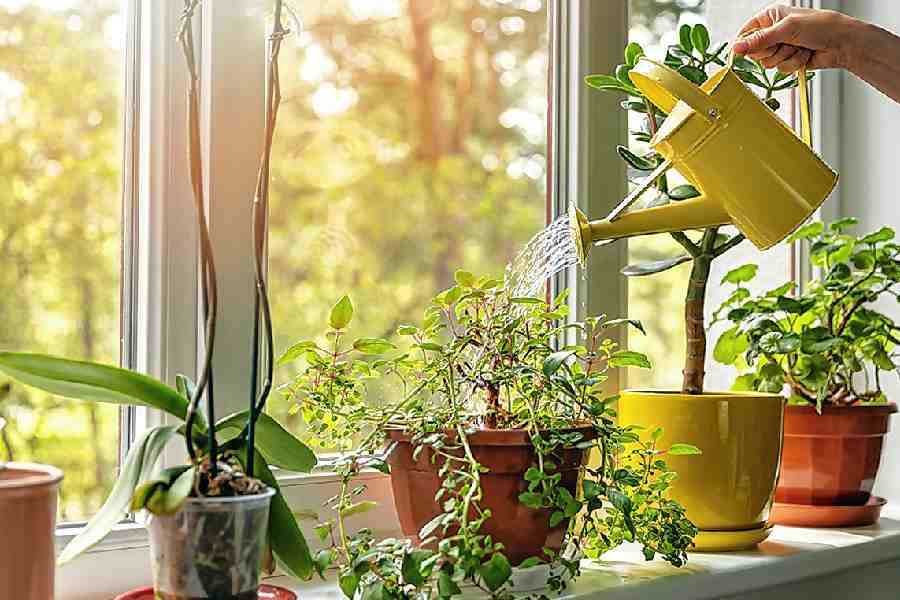If you have a green thumb and a home garden that you tend to, chances are your biggest challenge is to keep bugs at bay. It’s very crucial to maintain hygiene of your plants and to keep them safe and far away from pests. At times, some pests or ants are good for plants as they clean harmful elements from the soil or roots, but too much of it is fatal for your plants.
The key to preventing pest infestation is to keep your plants healthy. Strong immune systems enable healthy plants to fend off insect invasions. You need to provide your plants with the correct environment to grow to maintain their health. This involves offering sufficient amounts of water, light, and nutrients to the plants.
You can assist to guarantee that your plants remain healthy and grow throughout the summer by paying attention to these suggestions and taking proactive steps to minimise bug infestations. You can develop a lovely, bug-free garden that you can enjoy all season long with a little work and attention to detail. Here are a few tips to keep your plants healthy in summer:
Watering
Maintaining the health of your plants requires frequent watering. Plants need water to maintain their form and structure and to absorb nutrients from the soil. When the soil begins to dry out, you should water your plants. Make sure not to over-water your plants because under-watering and over-watering can both be harmful.
Proper sunlight
The proper amount of sunlight is necessary for plants to develop and thrive. Make sure to do your research on the particular needs of your plants because different plant types have different light requirements. While some plants need full sun, others require some shade. If you discover that your plants are receiving too much or too little light, you might need to move them or give them more light.
Feritilising
Another crucial component of maintaining the health of your plants is fertilising them. Plants grow and flourish by receiving the nutrients they require from fertilisers. It’s important to apply the proper kind and quantity of fertiliser. Plants that receive too little or too much fertiliser will not be able to grow correctly.
Use of natural remedies
An efficient technique to keep insects away from your plants is by using natural treatments. In general, natural solutions are better for your plants than chemical pesticides. Here are some home treatments you may use to deter insects from visiting your plants:
Neem oil: Neem oil is a natural pesticide that kills and repels a wide variety of insects. Neem oil should be diluted with water as directed on the container before being sprayed on plants.
Spray made with garlic: Garlic naturally repels insects. Several garlic cloves should be chopped up and combined with water to make garlic spray. Strain the mixture after it has steeped for the night, then spray it over your plants.
Spraying soap: Spraying soap is a powerful pesticide that may be used to get rid of a variety of insects. Mix a few teaspoons of dish soap with enough water to produce a spray, then mist your plants with it.
The cleaning
Another crucial element in avoiding pest infestations is maintaining clean plants. Dead leaves and other debris might act as insects’ nesting ground and facilitate their infestation of your plants. Here are some suggestions for cleaning up:
Remove dead leaves: Frequently clear your plants of dead leaves and other debris. This will aid in preventing the spread of illness and insects.
Pruning: Pruning your plants will keep them healthy and guard against bug infestations. Trim any leaves or branches that are dead or damaged.
Water: Using a vigorous stream of water can help you remove any insects that may be on your plants. This might lessen the chance of their infesting your plants.
Companion planting
There are more ways you may adopt to stop insects from infesting your plants in addition to those listed above. Companion planting, for instance, entails growing specific plant species next to one another to ward off insects. Marigolds are an example of a plant that may be grown close to your garden as natural insect repellents to help keep pests away. Using physical barriers like netting or row covers can also keep pests away from your plants.
Rotating
Additionally, rotating your crops each year can help prevent the garden soil from becoming overrun by pest population. Rotating your crops can assist to disrupt pests’ life cycles and decrease their population because insects and other pests tend to favour particular plant varieties. Another efficient method of catching and killing insects without the use of harmful chemicals is with sticky traps.
